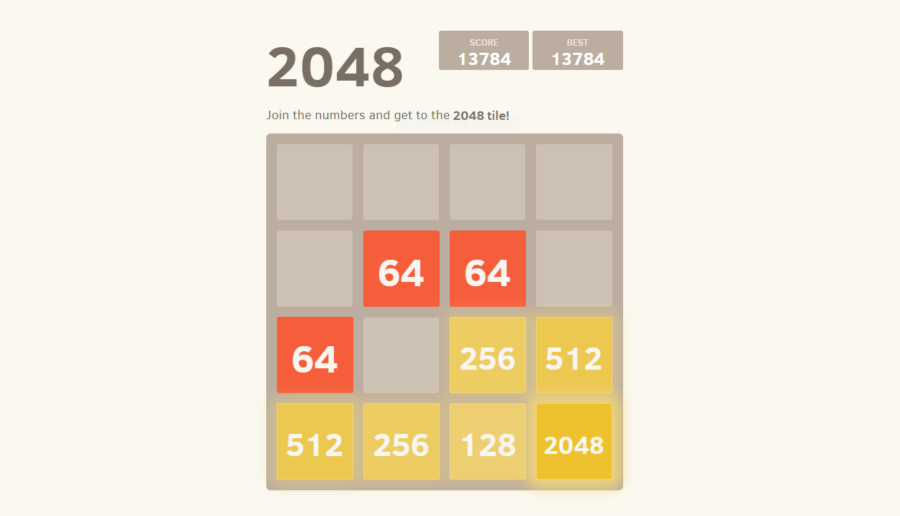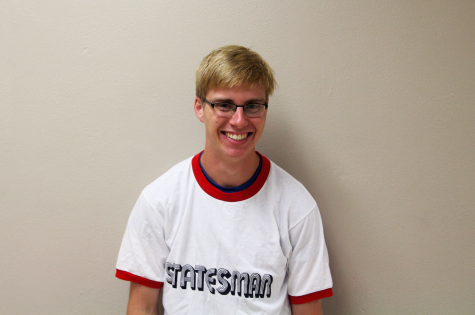The SFSD considers a new grading system
Administrator Jon Turteltaub has a plan that will shake up scores
Screenshot of hczhcz.github.io/2048/
The puzzle game 2048 is beloved by many students as a fun “math” game. But could it be more?
December 10, 2018
In the midst of renewed efforts to boost grades across the district, administrators are pointing to the grading system as an area that could use some work. The biggest idea: Replace the percentage based grading system with one that gives scores based off of where you would be if you were playing a game of 2048.
Jon Turteltaub is the district’s curriculum adviser and the mind behind the project. The inspiration for the idea came from a recent visit to a classroom.
“It was around 2013, and I was checking in on a sixth-grade math class at Whittier. There was a young lady playing some sort of puzzle game on his Chromebook, so I asked her ‘Why are you playing a game in the middle of class?.’ She responded ‘No, it’s a math game’ and demonstrated that it does, in fact, involve mathematics,” said Turteltaub.
2048 is a puzzle game that incorporates a 4×4 grid in which different tiles are slid around. What makes the game special, however, is that the tiles have numbers. A player starts with two tiles, each worth two points. These tiles are combined to make a total of four, and the game progresses by combining newly generated tiles until a single tile with the value of 2048 is created.
“I looked at this game and I thought ‘hey, this is something that could be more than an educational tool for math. This could be a great replacement for our current grading scale.’ I’ve always had the opinion that the system could use a little sprucing up,” said Turteltaub.
On the new scale, the best grade you can get is 2048, the highest tile in a normal game. The second highest is 1024, the third highest is 512, and so on. All 2048’s in a class would equate to a 4.0 average. The innovative new scale may seem similar to what we already have, but with A, B, C, D and F being replaced with seemingly arbitrary numbers. However, these numbers are anything but arbitrary.
“What’s the difference between the 2048 system and what we have now? Relatability,” said Turteltaub. “The student I talked to told me that all of her friends play 2048 while they wait for Edmodo to load. If there’s one thing I know about young kids, it’s that they want adults to try to adapt to what’s cool. Grades need to be vocalized in the language that kids are speaking in, and that language is the game of 2048.”
Turteltaub has been perfecting his system ever since his moment of inspiration, and it has started to gain traction with the school board. The school board is set to vote on the 2048 system in 2020.
“There are some very powerful people in the school district who fully support this project,” said Turteltaub. “I don’t want to name any names, but a certain official with a doctorate happens to think my idea is pretty cool.”
“He has good intentions,” said Dr. Brian Maher, District Superintendent.










Margy Thorstenson • Dec 12, 2018 at 1:39 pm
As a former teacher, this really made me chuckle! Fun article!